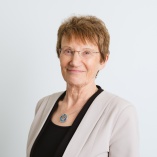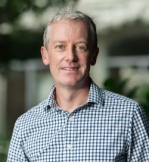Search
Showing 10 of 1954 results for NARSC 2016 conference registration fees student pre advance late July 2016
-
Around the world in five
UK
ELT sector concerns over rising agent costs
English language training institutions have voiced concerns that the rising commission rates of education agents are making it unsustainable for schools to pay.
GLOBAL
Bilingual education – a competitive advantage
Offering students a bilingual education could be key to improving access to higher education, provide opportunities to study abroad and improve future job prospects in an increasingly globalised world.
SOUTH KOREA
Fourth straight year of strong international student growth
Enrolments from Viet Nam are a strong factor in South Korea’s overall international student growth of nearly 70 percent since 2014.
BRAZIL
EMI courses in Brazil grow to more than 1,000
A growing number of higher education institutions in Brazil are recognising the importance of offering English as Medium of Instruction courses, with the number of EMI courses rising from 671 in 2016 to over 1,000 in 2018.
CHINA
The consolidation of private higher education
With more than 740 private higher education institutions in China, and thousands of private vocational schools, China’s fragmented private higher education industry is expected to undergo a wave of consolidation over the next decade.
-
Work and study options for Koreans
Held at the CGV Cine Library in Seoul, the seminar was aimed at young Koreans interested in New Zealand’s Working Holiday Visa (WHV) scheme.
The event attracted nearly 100 participants including university students and young professionals who received practical advice about English language learning, job seeking, safety and life in New Zealand.
Kay Lee, ENZ’s Senior Market Development Manager for Korea, said the seminar was a great way to reach out to young Koreans who are already interested in New Zealand and help them gain a better understanding of New Zealand education and ELS programmes.
“Some 3,000 Koreans obtain a New Zealand WHV every year – and each is a potential student for our ELS providers. WHV holders normally take a three to six-month English language course prior to travelling or finding a job in New Zealand.”
The annual WHV quota for Koreans was increased from 1,800 to 3,000 in 2016 and allows Koreans aged between 18 and 30 years to spend 12 months in New Zealand.
“They come to New Zealand mainly to improve their English proficiency and experience New Zealand culture by working at Kiwi farms or in hospitality and tourism industries.”
Kay used the seminar to showcase qualified ELS programmes and how to prepare for student life in New Zealand. This was complemented by presentations from New Zealand Trade and Enterprise, Tourism New Zealand and Air New Zealand which focussed on New Zealand culture, business sectors, travel and flight options.

-
US student Fox Meyer has received a $5,000 Think New Grant for his research.
A Bachelor of Science student at the University of Otago, Fox’s research is looking at how South Dunedin's geology will change over time and respond to dramatic events such as earthquakes – in particular, how the harbour water flow will impact South Dunedin.
“South Dunedin is built on reclaimed land, meaning the land had to be significantly modified by humans to accommodate our support infrastructure and housing,” said Fox.
“Instead of trying to deny ground water its natural course, I’ve set out to help explain how to balance living in South Dunedin while allowing that water to flow freely beneath our feet.”
Fox’s research earned him a Think New Grant, administered by ENZ. The $5000 grant supports international students working on innovative research or study projects in New Zealand.
Along with his supervisor, Dr Virginia Toy, Fox is planting water sensors in Otago Harbour in order to understand how water flows between the inner harbour and the porous sediments of South Dunedin.
The pair currently have three sensors and will use the grant to purchase more, which will expand the scope of the project.
ENZ’s Chief Executive, Grant McPherson, said Fox’s application was a stand-out entry in a very strong field.
“We had 61 applications, and it was extremely difficult to choose the winner. There was an amazing range of very high-quality applications,” said Grant.
“In order to create a better future for New Zealand, we need new approaches and solutions. Our education system, and Kiwi culture more generally, encourages creativity, innovation and critical thinking – and this brings some exceptional international students here to help us with this.”
A total of 2,732 international students from the US studied at New Zealand universities in 2017, up nine percent on 2016.
-
Student speakers at NZIEC 2018
 WelTec student Angelique Viola came from the Philippines to study accounting here, leaving behind a secure job and taking a leap of faith. After graduation, her goal is to find employment as an accountant in New Zealand.
WelTec student Angelique Viola came from the Philippines to study accounting here, leaving behind a secure job and taking a leap of faith. After graduation, her goal is to find employment as an accountant in New Zealand.Three things I’ve enjoyed about being an international student in New Zealand:
1. My tutors were supportive and made me feel comfortable to ask them questions. It helped me cope up with my studies and boosted my confidence. Other support, like the free shuttle bus provided by my school, was also a big help.
2. It is the first time that I encountered a study break during the school semester. That one-week break helped me to cool off before the final exams.
3. The Work-Ready Wellington programme helped me learn about New Zealand’s working environment.
Three things I’ve found hard about being an international student in New Zealand:
1. Finding a part-time job related to the field I am studying.
2. The cost of transportation is quite expensive.
3. It’s challenging to find an institution that offers free seminars/training to enhance specific skills I am lacking.
The one thing that would have made the biggest difference/improvement in my experience is…
I am taking a Graduate Diploma in accounting and it would be beneficial to have on-the-job style training and to learn software such as Xero or MYOB in the curriculum. This would definitely help me in my job hunt since most New Zealand employers are looking for experienced individuals.
 Yuki Sugito left Japan to study at Wainuiomata High School – party driven by the appeal of the All Blacks at the 2015 World Cup. He has become involved in kapa haka, competing in the national championships with his school group. He plans to study tourism management at the University of Otago, and also wants to teach Japanese to Kiwis.
Yuki Sugito left Japan to study at Wainuiomata High School – party driven by the appeal of the All Blacks at the 2015 World Cup. He has become involved in kapa haka, competing in the national championships with his school group. He plans to study tourism management at the University of Otago, and also wants to teach Japanese to Kiwis.Three things I’ve enjoyed about being an international student in New Zealand:
1. I like learning about New Zealand culture. At school, I participate in Kapa Haka and get to learn the significance of Māori traditions.
2. New Zealand school is less strict than Japan and I can relate to the teachers and build good relationships.
3. I can practice my English every day.
Three things I’ve found hard about being an international student in New Zealand:
1. Learning English is hard. In Japanese we don’t pronounce “r’s” and “l’s”. Also, the slang New Zealanders use is hard to get used to.
2. In New Zealand you have to self-manage your time. In Japan you “must” do things, in New Zealand you “should” do things, but no one makes you do it. You have to be motivated to achieve.
3. The NCEA system is different and hard. The system in New Zealand means if you don’t get your credits you can’t go to university. In Japan, the universities don’t operate like this.
The one thing that would have made the biggest difference/improvement in my experience is…
The classes for each subject in school are longer than in Japan. I wish New Zealand had at least a 10-minute break between classes. In Japan, classes are 50 minutes long with a small break in between which makes you feel recharged to learn the next subject.

Jingxin 'Ada' Wang is originally from China, and studied a master’s degree in accounting at Victoria University of Wellington. She enjoys travelling and has embraced hiking since being in New Zealand.
Three things I’ve enjoyed about being an international student in New Zealand:
1. Excellent international student insurance – I don’t need worry about any accidents.
2. Help from the international students centre, they give you the best advice no matter what issues you struggle with. There are also lots of discounts for international students such as gyms, barbershops and restaurants.
3. I went to a Work-Ready course organised by Wellington Council, which made it easier for me to find employment after graduating.
Three things I’ve found hard about being an international student in New Zealand:
1. The Kiwi accent was very hard to understand at the beginning, and it was difficult for people to understand my own accent.
2. It’s hard to find delicious and authentic Chinese food in New Zealand.
3. Winter is my nightmare, and the weather here is always so rainy, windy and cold!
The one thing that would have made the biggest difference/improvement in my experience is…
I wish I had more support from my university about New Zealand etiquette and taboo. International students need to mingle into New Zealand culture and society and know the appropriate way to speak and to behave.
-
Our board
Tony Gray | Acting Chair
 Tony Gray has had a career in education spanning over 37 years across New Zealand and the United Kingdom. Tony is a former Chief Executive of NMIT and Ara Institute of Technology.
Tony Gray has had a career in education spanning over 37 years across New Zealand and the United Kingdom. Tony is a former Chief Executive of NMIT and Ara Institute of Technology. He is currently the Chief Executive of Nelson Tasman Hospice Trust. His governance portfolio includes Chair of the Tertiary Accord of New Zealand, where he worked towards establishing a shared online learning platform across member institutes. In 2023, Tony was appointed as a Member of the New Zealand Order of Merit for his services to education.
Lyn Provost | Board member
 Lyn Provost was Controller and Auditor-General from October 2009 until 2017. From 2001 to 2009 she was the first female and civilian Deputy Commissioner of New Zealand Police. Lyn recently completed a six year term on the International Auditing and Assurance Board. In 2016 she received the Global category award in the nationwide Women of Influence awards. In 2017, as part of the Queen's Birthday Honours List, Lyn was made a Companion of the New Zealand Order of Merit for services to the State.
Lyn Provost was Controller and Auditor-General from October 2009 until 2017. From 2001 to 2009 she was the first female and civilian Deputy Commissioner of New Zealand Police. Lyn recently completed a six year term on the International Auditing and Assurance Board. In 2016 she received the Global category award in the nationwide Women of Influence awards. In 2017, as part of the Queen's Birthday Honours List, Lyn was made a Companion of the New Zealand Order of Merit for services to the State.Daniel Wilson | Board Member

Daniel Wilson started his career in Auckland as a music teacher. After positions at several schools in Auckland and London, Daniel was appointed to the Leadership team at Manurewa High School in 2007, firstly as Deputy, then Associate Principal.
In 2015, Daniel moved to Nelson to take up the position of Principal at Nayland College. Daniel has extensive knowledge of international education from a secondary perspective, with Nayland College hosting approximately 80 international students from around the globe in 2020. Daniel also has a very good understanding of a range of markets and marketing approaches, having overseen a 40% increase in international numbers since joining Nayland College.
As well as leading Nayland College, Daniel is also the Lead Principal and Governance Chairperson for the Top of the South Trades Academy. He has also acted as a Regional Engagement Lead for the recent National Certificate of Educational Achievement (NCEA) review. Over the years Daniel has, and continues to work with various national and regional advisory groups. In his spare time Daniel is an accomplished brass musician, playing trombone in a variety of musical groups around Nelson and serving as President of Nelson City Brass.
Dr Therese Arseneau | Board Member
 Dr Therese Arseneau has wide ranging governance experience including as Chair of the Board of ChristchurchNZ, Ara Institute of Canterbury, Regenerate Christchurch and the Christchurch Symphony Orchestra; and as a Director of J Ballantyne Company Ltd, The Open Polytechnic of New Zealand Ltd, Enterprise North Canterbury and the Social Sciences Research Council of Canada.
Dr Therese Arseneau has wide ranging governance experience including as Chair of the Board of ChristchurchNZ, Ara Institute of Canterbury, Regenerate Christchurch and the Christchurch Symphony Orchestra; and as a Director of J Ballantyne Company Ltd, The Open Polytechnic of New Zealand Ltd, Enterprise North Canterbury and the Social Sciences Research Council of Canada.Therese has over 30 years’ experience in the tertiary education sector, including as a university lecturer in Canada and New Zealand. A specialist in elections and New Zealand politics, she is currently an Adjunct Senior Fellow in Political Science at the University of Canterbury and in 2011 she received a UC Teaching Award for excellence in teaching. Therese holds a DPhil and MPhil from the University of Oxford, which she attended as an international student and Commonwealth Scholar.
Dr Linda Sissons | Board Member
 Dr Sissons has considerable experience in the tertiary and vocational education sector. Previously she was Chief Executive for the Universal College of Learning (UCOL), Taratahi Agricultural Training Centre, Wellington Institute of Technology, Hutt Valley Polytechnic and Primary ITO. She was also a member of the NZIST Establishment Board from 2019 to 2020.
Dr Sissons has considerable experience in the tertiary and vocational education sector. Previously she was Chief Executive for the Universal College of Learning (UCOL), Taratahi Agricultural Training Centre, Wellington Institute of Technology, Hutt Valley Polytechnic and Primary ITO. She was also a member of the NZIST Establishment Board from 2019 to 2020.Recently, she completed two terms as Chair of the Board of Governors of Commonwealth of Learning, an intergovernmental agency delivering technology-mediated learning for sustainable development throughout the Commonwealth.
In 2006, Dr Sissons was made a Companion of the New Zealand Order of Merit for services to tertiary education.
Dr Erik Lithander | Board Member
 Dr Erik Lithander has had a career in higher education spanning over 20 years across New Zealand, the United Kingdom, Ireland and Australia. He is a former Pro Vice-Chancellor and Vice-President (International and Outreach) at the Australian National University in Canberra and Director of International Affairs at University College Dublin.
Dr Erik Lithander has had a career in higher education spanning over 20 years across New Zealand, the United Kingdom, Ireland and Australia. He is a former Pro Vice-Chancellor and Vice-President (International and Outreach) at the Australian National University in Canberra and Director of International Affairs at University College Dublin.Dr Lithander is currently the Deputy Vice-Chancellor Strategic Engagement at the University of Auckland. Prior to commencing this role in 2021, he was the Pro Vice-Chancellor and Vice-President (Global Engagement) at the University of Bristol in the United Kingdom. Dr Lithander has an internationally focused governance portfolio, with oversight of the Auckland Confucius Institute and previously the North Asia CAPE (Centre for Asia Pacific Excellence). He also is Chair of the Advisory Boards for the New Zealand Centre at Peking University and the New Zealand Centre at the Indian Institute of Technology (Delhi).
-
Around the world in five: News round-up 3 March 2016
THAILAND
The Bangkok Post reports on the pace of progress to reform the education system in Thailand, the impact of this on Thai people and the Thai economy, and the flow on effects of intense competition for international schools in Bangkok. The article states Thailand may now be ready to increasingly look to foreign partners to make progress; the Education Ministry is reported to be working with Cambridge University to reform English language teaching and assessment and talking to education officials in Finland.
GLOBALResearch in to the regional differences in motivations, goals and behaviours of students seeking to study internationally culminated in FPP Edu Media producing a report that provides insights in to which messages and education offerings resonate in which markets. Download the report here.
JAPANThis month the Japan Business Federation, Keidanren, has brought forward the national start date for its companies’ rigorous graduate hiring processes, with mixed views to date on the impact for Japanese students studying abroad. From this year the association has advised members to begin interviewing students from June for job offers in October. Encouragingly, Keidanren’s guidelines have suggested companies make allowances for students abroad when hiring. The PIE News provides more detail.
SAUDI ARABIAThe recently appointed Minister Mohammed Al Isa has signaled that the Ministry [link in Arabic] will review a long-standing ban on foreign universities being established in Saudi, and commented that private education will ‘drive the future of the education sector’.
MALAYSIAThe Malaysian government has reported that it is on track to meet its goal of attracting 200,000 international students annually by 2020. Earlier this month it announced that all university students will be required to pass English language, currently taught as a second language, in order to graduate from university. The government expects a focus on English languages skills at all levels of its education system will make Malaysia a more attractive international education destination. Read more in The PIE News.
-
Eighth Education Joint Working Group meeting held
The Chinese delegation was led by Vice Minister of Education Dr Hao Ping. He was accompanied by senior officials from China’s Ministry of Education, the China Scholarship Council (CSC) and the China Education Association for International Exchange (CEAIE).
Before the JWG, Vice Minister Hao and his delegation called on Tertiary Education, Skills and Employment Minister Steven Joyce, where a range of issues of mutual interest were discussed.
The JWG is the formal mechanism under which discussions take place between government officials on the bilateral education and training relationship. Established in 2002 – and the first such consultations between China and any foreign country – these meetings provide the opportunity to take stock of what has been achieved and to chart a strategic course for the future.
“The importance of having such periodic and “formal” consultations can’t really be overstated”, says ENZ's Regional Director – Greater China Alexandra Grace.
“Between JWGs there is of course regular interaction, both at ministerial and officials’ level, but the JWG process brings with it its own kind of discipline. Both sides are acutely aware of the need to evidence progress on both standing agenda items, as well as on newer initiatives. It is the perfect 'action-forcing' occasion, which also nicely evidences how the bilateral education relationship involves a range of actors on each side”.
This year’s meeting discussed the promotion of student mobility between New Zealand and China, the teaching of Chinese culture and language in New Zealand, cooperation between education institutions at schooling and tertiary levels, quality assurance projects, New Zealand’s involvement in Chinese training programmes and the implementation of Free Trade Agreement related education initiatives.
ENZ will follow up on specific opportunities that were discussed during the meeting and liaise with relevant sector peak bodies as appropriate.

Above:Members of the New Zealand and Chinese delegations enjoy a nice Wellington day after the conclusion of the 8th JWG meeting.
Two arrangements were signed at the meeting, covering qualification recognition and cooperation in higher and vocational education:
-
The Arrangement on Mutual Recognition of Academic Degrees in Higher Education between the Government of New Zealand and the Government of the People’s Republic of China
-
The Arrangement to Operationalise the Vocational Education and Training Model Programme in place between the Ministry of Education of New Zealand and the Ministry of Education of the People’s Republic of China
An Agreement on Cooperation in Higher Education between Universities’ New Zealand and China Education Association for International Exchange was renewed.

Above: Universities New Zealand representative Derek McCormack signs a cooperation agreement with CEAIE Secretary-General Sheng Jianxue, witnessed by Peter Hughes and Dr Hao Ping.
New Zealand’s delegation was led by Secretary for Education Peter Hughes. ENZ Chief Executive Grant McPherson joined NZQA Chief Executive Dr Karen Poutasi and officials from the Ministry of Education, ENZ, NZQA, the Ministry of Foreign Affairs and Trade in the meeting.
Derek McCormack, Vice Chancellor of AUT University, represented Universities New Zealand to discuss cooperation in higher education and Mark Flowers, Chief Executive of Waikato Institute of Technology, represented New Zealand’s institutes of technology in vocational education discussions.
The last JWG meeting was held in Beijing in 2010. The next JWG meeting is scheduled for 2016.

Above: ENZ Education Manager An Jiangqun (Rosemary) interprets at the JWG meeting. Rosemary’s skills as a trained interpreter came in handy during technical discussions on education cooperation.
-
-
Inaugural Japan Fair a resounding success
It wasn’t just about the numbers though – the level of interest and engagement between visitors and exhibitors was palpable. Many visitors spent a few hours at the fair, taking their time to explore study options in New Zealand. Participating New Zealand providers enjoyed both the quantity and quality of their consultations with potential students, parents and schools.
Much to the keen interest of their New Zealand counterparts, representatives from some of Japan’s universities also attended, with a view to seeking partnerships.
Frances Little, Director, International Centre at AUT University, remarked, “Congratulations on an extremely successful agent workshop and student fair in Tokyo. These were the best supported events organised by ENZ I have attended in my years working in the industry. Team Japan you are a credit to the organisation and deserve every accolade you get. Thank you for everything, AUT will definitely be at the Japan events next year.”

In conjunction with the fair, ENZ hosted two education seminars and alumni networking events in Osaka on 8 October and Tokyo on 9 October. More than 65 education agents and institutions in total attended the seminars, and more than 150 guests were welcomed at the networking events.
ENZ is grateful for the support of Tourism New Zealand and Air New Zealand at the fair, as well as that of entrepreneurial New Zealand companies, Cookie Time and Allpress Espresso, that provided cookie and coffee samples to the guests.
As part of ENZ’s Business Plan for 2015/16 Japan was prioritised as a ‘promote’ market and will see a corresponding increase in the number of promotional activities. With the Japanese government’s goal to double the number of Japanese students studying overseas to 18,000 by 2020, and with the upcoming Rugby World Cup in 2019 and the Olympics in 2020, we are seeing Japanese schools and universities have be increasingly proactive in exploring international partnership opportunities.
ENZ looks forward to hosting an education fair, agent/industry seminars and alumni networking events again in October 2016.

-
Facebook Global Pages
Each Global Pages structure has an overarching global page, or ‘default’ page, that acts as the main Uniform Resource Locator (URL) for the market-specific pages which sit under it. The market pages can be set up for a single country or set of countries, and can be customised so that Facebook users are redirected to the relevant market page, according to where they live and which language they speak.
This means users will be served content that is most relevant to them, and create more interest as a result.
Japan Market Page pilot
In February 2016, ENZ launched a ‘Japan Market Page’ pilot, where users based in Japan and/or who have Japanese set as their language will be served content posted on the Japan Market Page, in both Japanese and English.
The content will contain a mix of material from ENZ’s global social media conversation calendar and local New Zealand education news and events.
A Japan-based intern (remember Ayumi the student blogger who visited New Zealand last year at the invitation of English New Zealand?) will manage content posting and will respond to questions and comments posted on the page.
Read more about Facebook Global Pages.
-
Universities New Zealand to strengthen ties with India
Stronger ties between New Zealand and India at the university level are a key outcome of the Prime Minister John Key’s visit to India currently underway.
Universities New Zealand (UNZ) has made two announcements: development of an engagement strategy to strengthen relationships with India and attract more university students to New Zealand; and a Strategic Education Partnership Agreement with the Maharashtra State Government.
Professor Harlene Hayne, Chair of Universities New Zealand and Vice-Chancellor of the University of Otago
Professor Harlene Hayne, Chair of Universities New Zealand and Vice-Chancellor of the University of Otago, says, “Currently, students from India make up five per cent of the 26,000 international students who are studying at a New Zealand university.
“We recognise there is significant potential to attract and welcome increasing numbers of university-level students from India.”
The strategy builds on an increasing university market presence in India, with student visas for first-time university students from India up 18 per cent through to August 2016. Professor Hayne says the UNZ India Strategy, which will be formally launched in early 2017, will see New Zealand’s universities working collectively to promote study in New Zealand, and to further develop and strengthen partnerships between institutions in India and New Zealand.
UNZ and ENZ are co-sponsoring the strategy. ENZ Chief Executive, Grant McPherson, says, “We are delighted to partner with our universities in India, and applaud their leadership in investing in the long-term future of this hugely important market.”
The Strategic Education Partnership Agreement with Maharashtra State Government provides a framework to explore academic opportunities between the two countries, added Professor Haynes.
Maharashtra State Government in Western India is the second most populous state in India with over 112 million inhabitants. Its capital, Mumbai, has a population of approximately 18 million. Maharashtra has 24 universities with a turnout of 160,000 graduates every year, while New Zealand has eight universities and 43,000 graduates each year.
“This strategic agreement offers us an avenue to build institutional engagement between our universities, through faculty relationships and exchanges, research and innovation collaboration, and information sharing.”

Shri Sitaram Janardan Kunte, Principal Secretary, Higher Education of the Maharashtra (left) and Professor Neil Quigley, Vice-Chancellor of the University of Waikato (right), who signed the agreement on behalf of Universities New Zealand.

